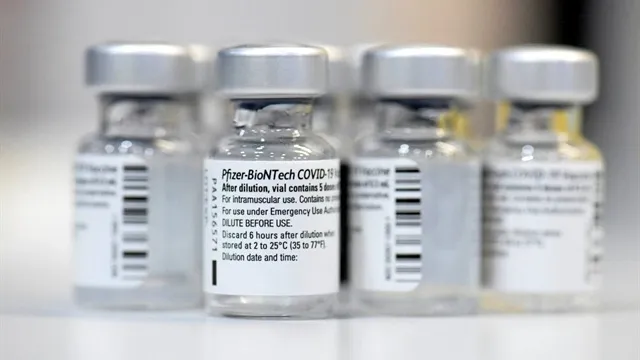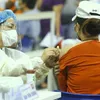Ministry issues guidance on COVID-19-vaccine associated heart issues

Health authorities in the US, Europe, and elsewhere have reported some rare cases of myocarditis and pericarditis occurring in individuals who received COVID-19 vaccines, especially mRNA-based ones like Pfizer/BioNTech or Moderna, with the cause not yet made clear.
These heart issues are more common among younger males and more often following the second dose of COVID-19 mRNA vaccines, according to the latest statement from the COVID-19 subcommittee of the WHO Global Advisory Committee on Vaccine Safety (GACVS).
However, the Ministry of Health noted the issues could worsen and become a danger to one’s life without timely detection and treatment, and urged caution when the symptoms indicate myocarditis/pericarditis like chest pain, shortness of breath, or palpitations following vaccination.
The symptoms typically appear 2-4 days after vaccination, but earlier occurrence (12 hours after vaccination) or later is also possible.
Physical examination may reveal no distinctive features or only pericardial friction rub, and the individual in question could have a fever or not.
Myocarditis/pericarditis respond well to conservative treatment and the condition improves within 3-5 days, but in some cases, it could turn acute, with manifestations of symptoms such as acute pulmonary oedema, acute heart failure, tamponade pericardial effusion, cardiogenic shock, tachyarrhythmias/bradycardias, fainting, and even sudden death.
All people who suffer from suspect symptoms need to notify the health ministry's hotline 19009095 or come to the nearest hospitals to rule out the possibilities of acute myocarditis.
In case of acute myocarditis, the patient needs to be closely monitored at a facility capable of performing cardiovascular resuscitation, and if the condition gets worse, the patient would need to be moved to a specialised heart hospital.
There is no specific treatment regime for post-vaccine acute myocarditis and pericarditis as yet. The recommended measures are to use nonsteroidal anti-inflammatory drugs and the medical staff must be ready to provide respiratory/circulatory support when there are critical developments such as acute pulmonary oedema, acute heart failure, arrhythmia, cardiogenic shock or pericardial effusion.
In case of heart failure with pulmonary oedema, the priority is to administer intravenous loop diuretics, oxygen, and assisted ventilation.
For people who had myocarditis/pericarditis after receiving the COVID-19 vaccine, if an additional dose(s) is required then another vaccine with a different technology should be chosen.
The ministry stressed the benefits of COVID-19 vaccines outweigh the risks of myocarditis and pericarditis even among young people and that the vaccine is the way out of the pandemic.
“While acknowledging the clear benefits of the mRNA vaccines in reducing deaths and hospitalisations due to COVID-19 infections, the subcommittee encourages all health professionals to report all events of myocarditis and other adverse events observed with these and other vaccines,” the statement from the WHO reads.
Vietnam has placed an order of 30 million doses from Pfizer (the first shipment arrived on July 7) and received 2 million doses of Moderna as a donation from the US government via the COVAX Facility on July 10.
Tags:





